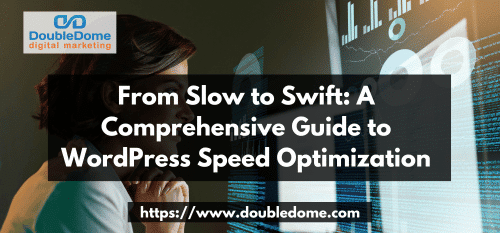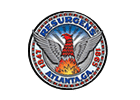WordPress is one of the most popular content management systems on the Internet and for a good reason. It’s easy to use, flexible, and can be changed in many ways. But speed is one of WordPress’s biggest problems. WordPress sites often take a long time to load, which can be annoying for visitors and even hurt their rankings in search engines.
There are many ways to speed up WordPress, which is good news. In this article, we’ll give you the ultimate guide to optimizing WordPress for speed, with tips and tricks for making your website run faster.

Choose a Good Hosting Provider
If you want to speed up WordPress, the first thing you should do is choose a good hosting provider. A good web host should have fast servers, reliable uptime, and great customer service.
There are a lot of hosting companies, and some are better than others. Look for companies with good reviews and a good name, and make sure their servers are set up to work well with WordPress.
Use a theme that doesn’t take up too much space.
The theme you choose for your WordPress site can have a big effect on how quickly it loads. A theme that is too big or has bad code can slow down your website, while a theme that is small and easy to code can help it load faster.
Look for a theme that is optimized for speed when picking one. A good theme should be well-coded, have few features and functions, and be small in size. You can find speed-optimized themes for both free and paid themes, so do your research.
Reduce the number of plugins you use.
Plugins can make your website more useful, but they can also slow it down. Each plugin you add to your website adds more code, which can slow it down.
To speed up WordPress, it’s important to use as few plugins as possible. Install only the plugins you need and get rid of the ones you don’t use. Also, look for plugins that are well-written and speed-optimized.
Optimize your images.
Images are an important part of most websites, but they can also make them load slowly. Images that are too big or not optimized can slow down your website a lot.
It’s important to optimize your images if you want to make WordPress run faster. This can be done by making them smaller, choosing the right file format, and compressing them. There are many plugins, like WP Smush and EWWW Image Optimizer, that can help you optimize your images.
Use a Content Delivery Network (CDN).
A content delivery network (CDN) is a group of servers that are spread out around the world. When a user requests a page from your website, the CDN sends the content from the server that is closest to them. This can make loading times much faster, especially for people who are far from your server.
You’ll need to sign up for a service like Cloudflare, MaxCDN, or Amazon CloudFront to use a CDN with WordPress. After you sign up, you’ll need to set up your website so that it can use the CDN.
Enable caching.
Caching is the process of temporarily storing data that is often accessed in a place like a user’s browser or a server’s RAM. This can cut loading times by a lot because the data can be served quickly without having to be loaded all over again.
You can use a plugin like W3 Total Cache or WP Super Cache to enable caching in WordPress. These plugins can save copies of your website’s pages, posts, and other content in a cache, so that your visitors can see them more quickly.
Minimize HTTP Requests.
When a user visits your website, their browser sends a series of requests to your server to get the content. Each request takes a little bit of time to load, so reducing the number of requests can help your website load faster.
You can reduce the number of images, scripts, and stylesheets on your site to cut down on HTTP requests. You can do this by combining files, cutting down on the number of images on your website, and making your code smaller. You can compress your files with tools like GZip and shorten your code with tools like WP Minify.
Optimize Your Database.
Your website’s posts, pages, comments, and other content are all stored in your WordPress database. Your database can get full of useless information over time, which can slow down your website.
You can use a plugin like WP-Optimize to optimize your database. This plugin can clean up your database by getting rid of data that isn’t needed, making your tables work better, and making your database smaller.
Use “lazy loading.”
This is a technique that keeps images and other content from loading until the user scrolls to them. This can make pages load much faster, especially if they have a lot of images.
You can use a plugin like Lazy Load by WP Rocket or a theme that supports lazy loading to use lazy loading with WordPress. As the user scrolls down the page, these plugins and themes can automatically load images and other content.
Keep Your Website Up-to-Date.
Lastly, it’s important to keep your WordPress website up-to-date. Updates can fix bugs, add security patches, and add new features, all of which can affect how fast and well your website works.
Make sure to update WordPress core, themes, and plugins often to keep your website up-to-date. You can also use a plugin like WP Updates Notifier to find out when new updates are available.
Conclusion:
By making your WordPress site faster, you can improve the user experience, boost your search engine rankings, and get more people to buy from you. By using the tips and tricks in this ultimate guide, you can speed up and improve the performance of your website.
Remember to use a lightweight theme, use as few plugins as possible, optimize images, use a content delivery network (CDN), enable caching, limit HTTP requests, optimize your database, use lazy loading, and keep your website up to date. By doing this, you’ll be on your way to a WordPress site that works faster and better.








